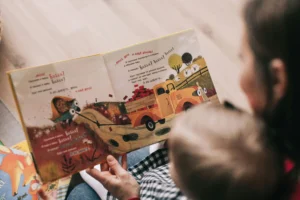Let’s be real—traveling with a baby can feel like you’re packing up half your house and saying a little prayer to the sleep gods. Between disrupted routines, unfamiliar sleep spaces, and the excitement of new surroundings, it’s no surprise that travel can throw off even the most solid sleep habits.
At Rocky Mountain Sleeping Baby, we work with families every day who have put in the time and energy to build healthy sleep foundations. And one of the most common questions we hear is: “How do I keep my baby’s sleep on track while we travel?” The good news is, it’s entirely possible—with the right tools and mindset.
Whether you’re flying cross-country, taking a weekend road trip, or heading to Grandma’s house, here are our top tips for maintaining a consistent pediatric sleep routine while traveling.
1. Keep the Bedtime Routine the Same—Wherever You Are
Consistency is comforting to babies. A predictable routine helps signal to your child that sleep is coming, which is especially important when everything else around them feels new. Stick with the same calming steps you use at home: bath, lotion, jammies, book, and lullaby. Even just 10–15 minutes of a familiar wind-down routine can help your baby transition to sleep more easily, even in a new environment.
If you’re traveling with limited space or staying in a hotel, get creative. Bring a foldable bath, read books on your phone or tablet, and keep the lights dim. You’re not aiming for perfect—you’re aiming for familiar.
2. Pack Sleep Essentials from Home
Babies are highly sensory beings. The smell of their sleep sack, the hum of their white noise machine, or the softness of a favorite lovey can provide enormous comfort and promote sleep. If your baby usually sleeps with blackout curtains at home, consider packing a portable blackout cover for windows, or even some painter’s tape and garbage bags (trust us—it works in a pinch!).
Other must-haves to bring along:
- Your baby’s crib or portable travel crib
- A white noise machine or app
- Sleep sack or swaddle
- Pacifiers for newborns (bring extras!)
- A few books or comfort items they associate with bedtime
By recreating their usual sleep environment, you’re helping your baby feel safe and secure, even far from home.
3. Try to Protect Nap Time
Yes, you’re on vacation—but your baby doesn’t know that. Skipping or shortening naps can lead to an overtired, cranky baby who struggles to fall asleep or stay asleep at night. Aim to prioritize at least one solid nap in a crib or travel cot each day, especially if your baby is younger or sensitive to schedule changes.
If you’re sightseeing or out and about, stroller naps or carrier naps can be lifesavers. They’re not always ideal, but they can help preserve the rhythm of the day and keep your baby from getting too overtired. If naps are off, consider moving bedtime up a bit earlier to make up for lost sleep.
4. Be Strategic About Time Zone Changes
If you’re traveling across time zones, know that it may take a few days for your baby’s internal clock to adjust. For short trips (three days or less), it’s often easier to keep your baby on their home time zone. For longer stays, gradually shift their schedule by 15–30 minutes each day toward the new time.
Morning sunlight exposure is incredibly helpful in resetting circadian rhythms. Take your baby outside for a walk or some fresh air shortly after waking up to help their body adjust to the new schedule. In the evening, keep things calm and dim to support melatonin production.
5. Don’t Stress About Temporary Disruptions
Even with your best efforts, sleep while traveling may not be perfect—and that’s completely okay. You may need to offer more help at bedtime or during night wakings, and your baby may need a little extra comfort in a new environment. That doesn’t mean all your hard work at home is undone.
The key is to give yourself—and your baby—grace. Once you return home, get back to your usual routine as quickly as possible. Babies are incredibly adaptable, and most fall back into their normal rhythm within a few days.
6. Prepare for the Transition Home
After an exciting trip, it can take a few days for your baby to readjust to sleeping at home. Expect some temporary sleep disruptions as they settle back into familiar surroundings. To support the transition:
- Reinforce your usual routine
- Be consistent with nap and bedtime schedules
- Avoid introducing new sleep habits unless necessary
If you’ve offered extra help while away—like rocking to sleep or co-sleeping—gently wean off these supports when you return, using the same calm and consistent strategies you used to establish healthy pediatric sleep habits in the first place.
You’ve Got This (And We’ve Got You)
At Rocky Mountain Sleeping Baby, we believe in practical, gentle sleep solutions that work for real families—and that includes travel! By planning ahead and staying flexible, you can support your baby’s sleep while still making the most of your adventures together.
If travel sleep challenges linger or you need help getting back on track, don’t worry—we’re here for you. Our personalized sleep support programs are designed to help your family thrive, no matter where life (or the road) takes you.
Ready for easier, happier sleep—for you and your baby?
Contact us to learn more or book a consultation today.





